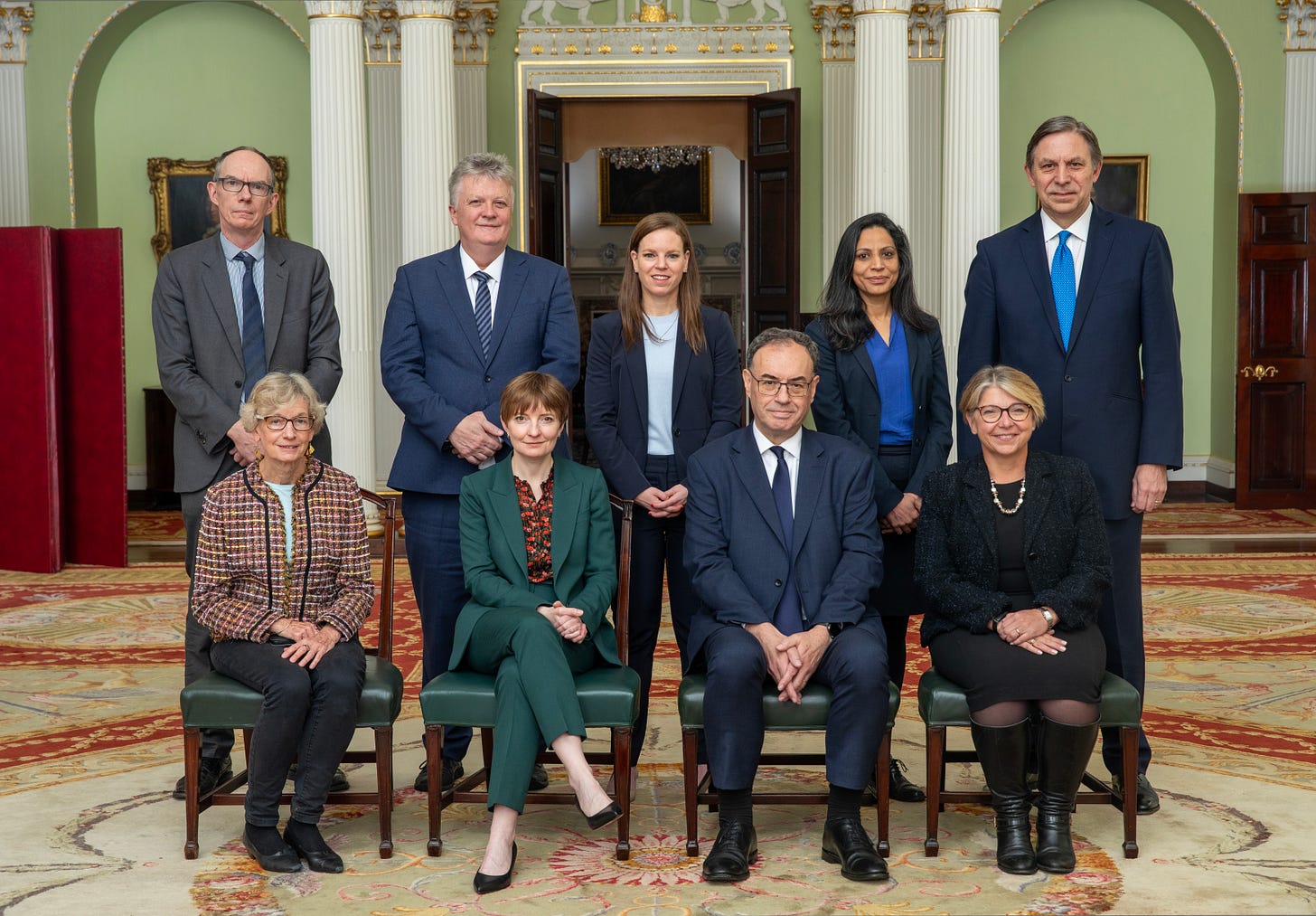10 Things the Chancellor Hates About Huw (Pill)
What the Bank of England’s cautious chief economist means for borrowers, businesses and Rachel Reeves
Medicine is not supposed to taste sweet. Indeed, patients often prefer to take something disgusting over a more palatable alternative — the thinking being that if it is hurting, it must be working. The same goes for chancellors of the exchequer.
The guardian of the nation’s finances really ought not to be popular, what with the difficult decisions to make and special interests to disappoint. And by that metric, Rachel Reeves’s first 11 months in office have been a triumph, with a YouGov poll for Sky News placing the chancellor in last position amongst the cabinet, on -46 with the public.
It is not difficult to see why. Whether due to missteps, bad timing, or forces beyond her control, everything Reeves does at the moment seems to go wrong. Her cuts to the Winter Fuel Payments have been largely reversed. Her growth plan has been hobbled by Donald Trump’s decision to upend the global trading system. And all the while, government borrowing appears to be on an ever-upward trajectory.
But there is one large chink of economic good news amid the gloom: interest rates have been falling. Since Labour came to power in July, the Bank of England has cut rates four times, from 5.25% to 4.25%. This reduces the cost of borrowing, a boon for government, businesses and homeowners alike. But not everyone is happy.
Last month, the Bank’s Monetary Policy Committee1 (MPC) voted by a majority of 5-4 to cut rates by 25 basis points. Two members voted to reduce the rate by 50 basis points, to 4%. Meanwhile, two other members opted to maintain the rate at 4.5%, one of whom was the Bank’s chief economist, Huw Pill2.
A couple of weeks ago, Pill delivered a speech called ‘The courage not to act’, a play on the title Federal Reserve chair Ben Bernanke chose for his memoir, The Courage to Act. I suppose in the confines of the monetary policy community, this qualifies as comedy. Anyway, in the wake of Governor Andrew Bailey’s appearance in front of the Treasury Committee this week, I thought it warranted a bit of discussion.
Interest rates are falling for a few reasons. First, the dual supply shocks of the Covid-19 pandemic and Russia’s full-scale invasion of Ukraine are subsiding. Second, and as a result, inflation has fallen, from a high of 11.1% in October 2022, to 2.6% in March, only a little above the 2% target. Third, global trade tensions are having a downward effect on the UK economy, with many forecasters slashing growth projections.
But one thing that is clear, whether from the hawks or the doves3, is that uncertainty is rife. I mean, no one even knows what the effect of Trump’s tariffs will be on inflation. It will send prices in the US higher, as firms pass on import tariffs to American consumers. But it is not so simple for the UK. Bear with me.
In the ‘prices could fall’ corner is Swati Dhingra, an economist and external member of the MPC. She has argued that, at least in the short term, US tariffs could reduce prices in Britain, as companies that would otherwise sell their goods in the US shift to the UK, where tariffs are lower. Such a flood of goods would have a downward effect on prices here.
But others, such as the OECD and National Institute of Economic and Social Research, warn of higher inflation, due to supply chain issues, currency fluctuations and other second-round effects. In other words, no one knows anything.
To be clear, despite his vote to hold steady last month, Pill is not opposed to gradual falls in interest rates. But he warns that the current pace of quarterly cuts of 25 basis points is “too rapid given the balance of risks to price stability we face”. Those risks are that, although inflation is falling, “disinflationary momentum has shown signs of stuttering”, with core services inflation remaining stubbornly strong.
In particular, Pill cites:
Second-round effects from energy prices, forecast to send inflation up to 3.5% this summer
Weaker labour productivity growth, which weighs on potential aggregate supply and increases unit labour costs
The Bank’s wage growth forecasts have systematically underestimated the strength of pay growth
I have long been of the view that economics is closer to philosophy than it is to physics. And the question that all policymakers face today is essentially, how do you respond to uncertainty? This is in fact not my question, but one posed by Bailey at the Treasury Committee this week.
One school of thought is that you respond with caution, adopt a wait-and-see approach. Another is that, if the changes to the global economy pose a threat to the inflation target, you need to act more aggressively, not less.
No doubt, the chancellor will be hoping that the Bank’s chief economist will be on the losing side of a few more votes this year. If he is not, that likely means inflation has remained obstinately robust, and subsequent higher interest rates will be a bitter pill to swallow4.
I should declare an interest that — despite lacking any qualifications — MPC member is my dream job
There is in fact a bar in Washington, D.C. called Hawk N Dove and, yes, I have had a beverage there
Sorry






